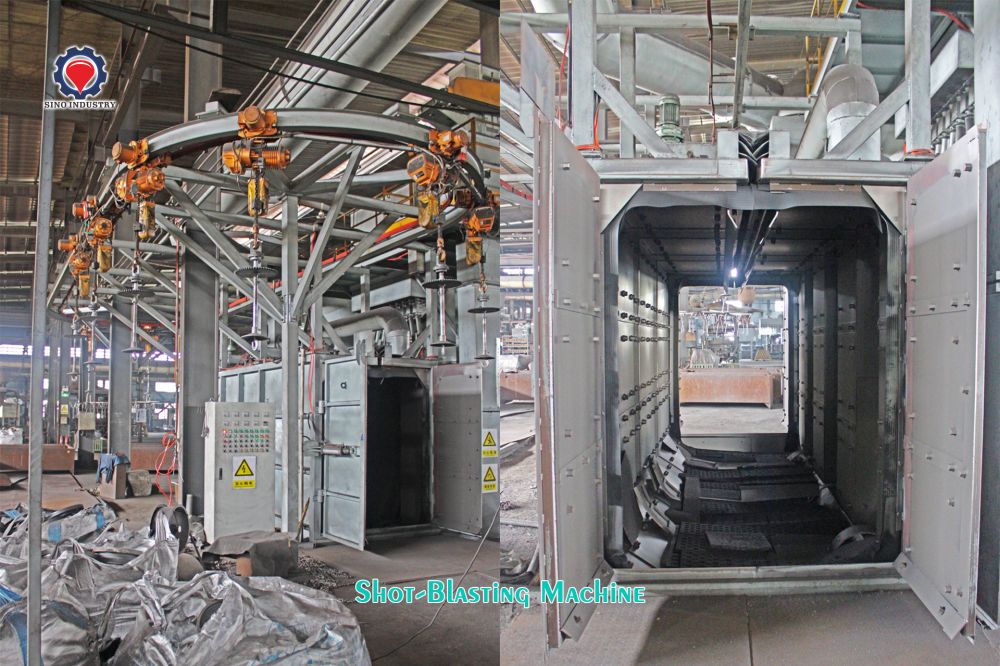Ductile iron, a material with excellent performance and high reliability, has a wide range of applications in many fields. Its outstanding mechanical properties, wear resistance, and corrosion resistance make it an ideal choice for industries such as automotive, machinery manufacturing, and bridge construction. Whether it is the undercarriage of heavy-duty vehicles, engine components, critical components of precision instruments, or the load-bearing structure of bridges, ductile iron plays a crucial role.
Pressure pipes and accessories
In the industrial field, ductile iron is widely used to manufacture pressure pipes and accessories. Its excellent pressure resistance allows the pipes to withstand significant internal pressure, ensuring the safety of fluid transportation. In addition, the construction of ductile iron pipes is simple and efficient, supporting various connection methods such as flange connection and socket connection, thereby greatly shortening the construction period. According to statistics, the installation time for ductile iron pipes in large-scale industrial projects can be saved by more than 30%.
Automotive industry applications
In the automotive industry, spheroidal cast iron is widely used in key components such as generators and gears. Taking Ford cars as an example, their crankshafts are largely made of spheroidal cast iron. The high strength and excellent toughness of this material enable the car engine to withstand greater loads and impacts during high-speed operation, thereby ensuring the stability and durability of the engine. At the same time, the lightweight characteristics of spheroidal cast iron also help reduce the overall weight of the car, thereby improving fuel economy.
Agricultural machinery and construction applications
Spheroidal cast iron is also suitable for equipment such as bulldozers and cranes in agricultural machinery and construction projects. In harsh field working environments, such as the wear and impact of soil and sandstone, spheroidal cast iron parts can show excellent durability. At the same time, in construction projects, these heavy equipment requires high-strength, high-toughness materials to ensure safe operation, and spheroidal cast iron is the ideal choice, which can extend the service life of the equipment and reduce maintenance costs.
Valve Manufacturing
Ductile iron plays an important role in the field of valve manufacturing. Its superior mechanical properties and corrosion resistance make the valves manufactured have excellent durability and reliability. At the same time, the casting properties of ductile iron also make the valve manufacturing process more efficient and convenient.
Gate valves are common components in industrial and municipal pipeline systems, with representative products such as clear stem ductile iron soft seal gate valves and ductile iron elastic seat seal gate valves. These gate valves control the flow of media by rotating the valve core and have good sealing performance, widely used in various pipeline systems.
Moreover, the application of ductile iron in valve manufacturing also brings many advantages. Its high strength and toughness allow valves to easily withstand high-pressure, high-load conditions, effectively reducing the risk of cracking or damage. At the same time, its excellent wear resistance allows valves to maintain excellent performance during frequent opening and closing, extending service life, especially suitable for pipeline systems containing particulate matter or high-speed flowing media.
Not only that, ductile iron also exhibits excellent corrosion resistance, capable of withstanding the erosion of common media such as tap water, wastewater, and saltwater, maintaining the stability of valve performance and lifespan. Through surface treatments such as coating with anti-corrosion paint and electroplating, its corrosion resistance can be further enhanced, making it suitable for corrosive environments such as chemical and marine industries.
Moreover, ductile iron also has excellent shock-absorbing properties, capable of absorbing and reducing vibrations and noise in pipeline systems, ensuring the smooth operation of valves, reducing noise pollution, and improving the comfort of the working environment. In terms of processing, ductile iron also performs well, making it easy to manufacture complex valve structures to meet different engineering design and usage requirements, with moderate manufacturing costs and suitable for mass production.
In summary, the application of ductile iron in valve manufacturing not only brings advantages such as simple structure and convenient operation, but also shows excellent performance in terms of corrosion resistance, wear resistance, and shock absorption, providing reliable protection for pipeline systems under various working conditions.
Ductile iron plays an indispensable role in valve manufacturing. It is particularly suitable for transporting acidic, alkaline, and saline liquids, demonstrating excellent corrosion resistance, capable of withstanding the erosion of various chemicals. In addition, ductile iron has a wide range of applications in the mechanical industry. It can be used to produce complex machine tool components or heavy machinery castings, and is also suitable for lighter castings. Complex machine tool components require high-precision and high-strength materials to ensure machining accuracy and stability, and the excellent mechanical properties of ductile iron meet this requirement. For lighter castings, ductile iron can also provide sufficient strength and toughness while reducing production costs.

Post time: Apr-01-2025



